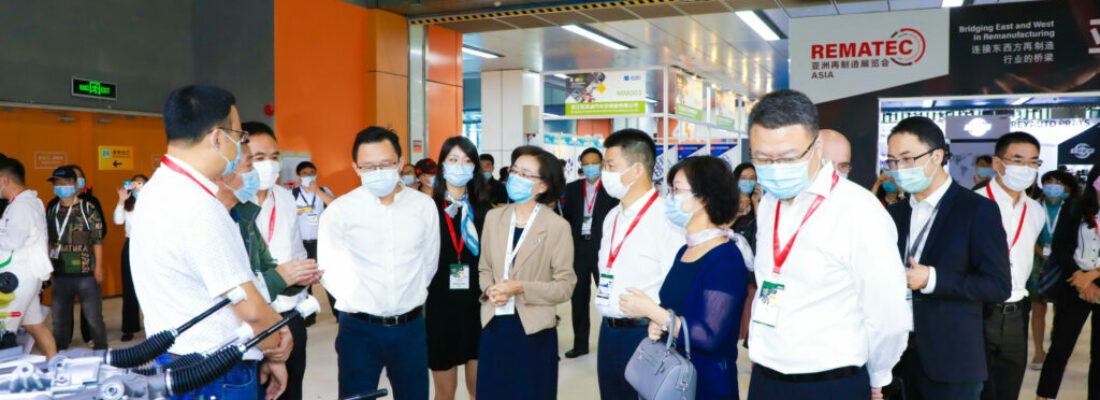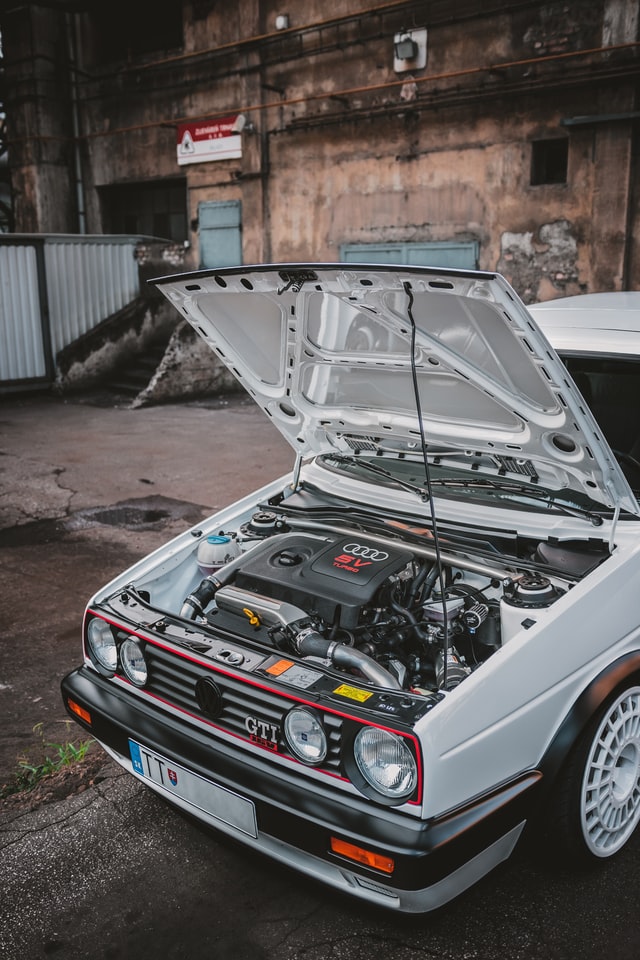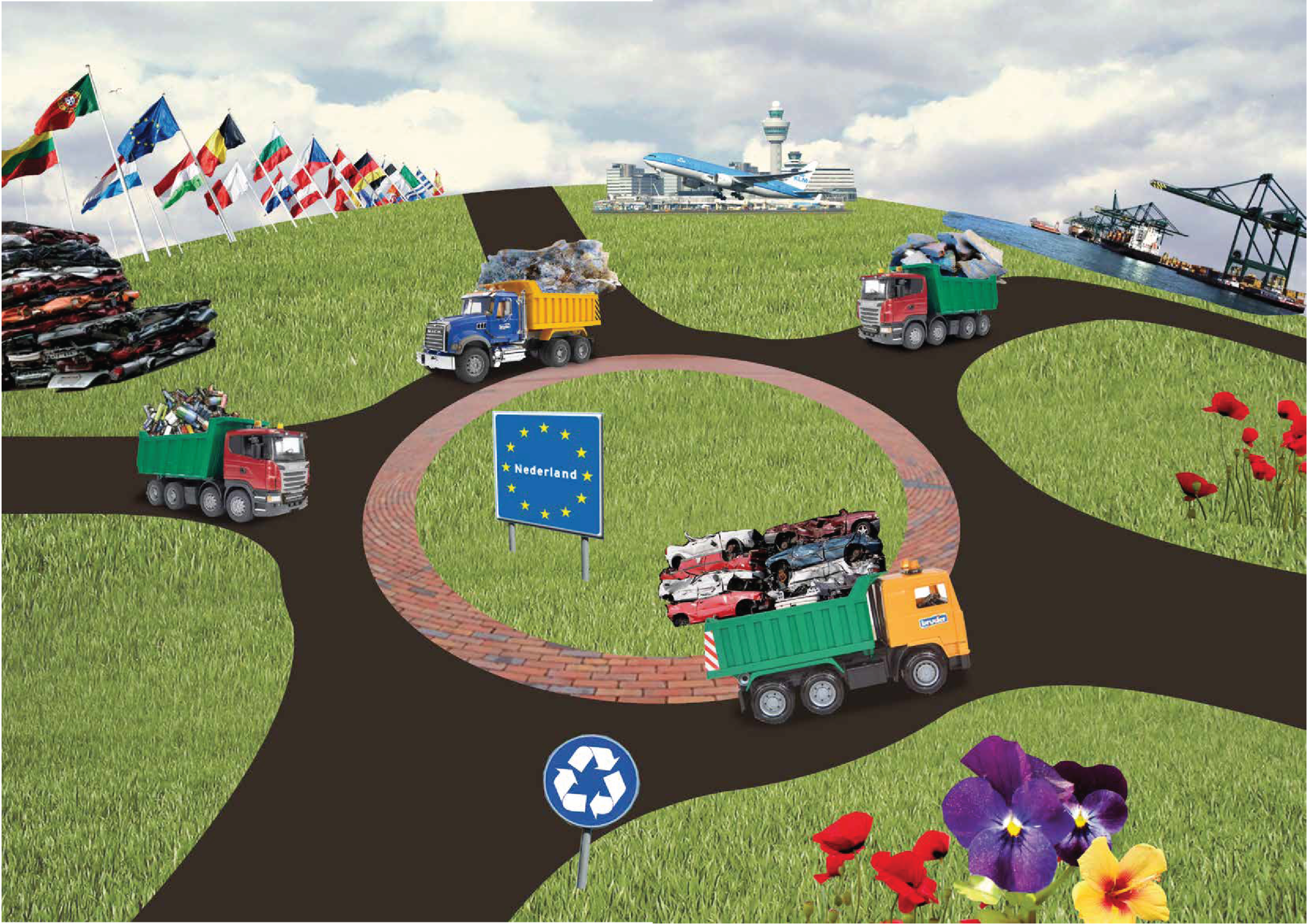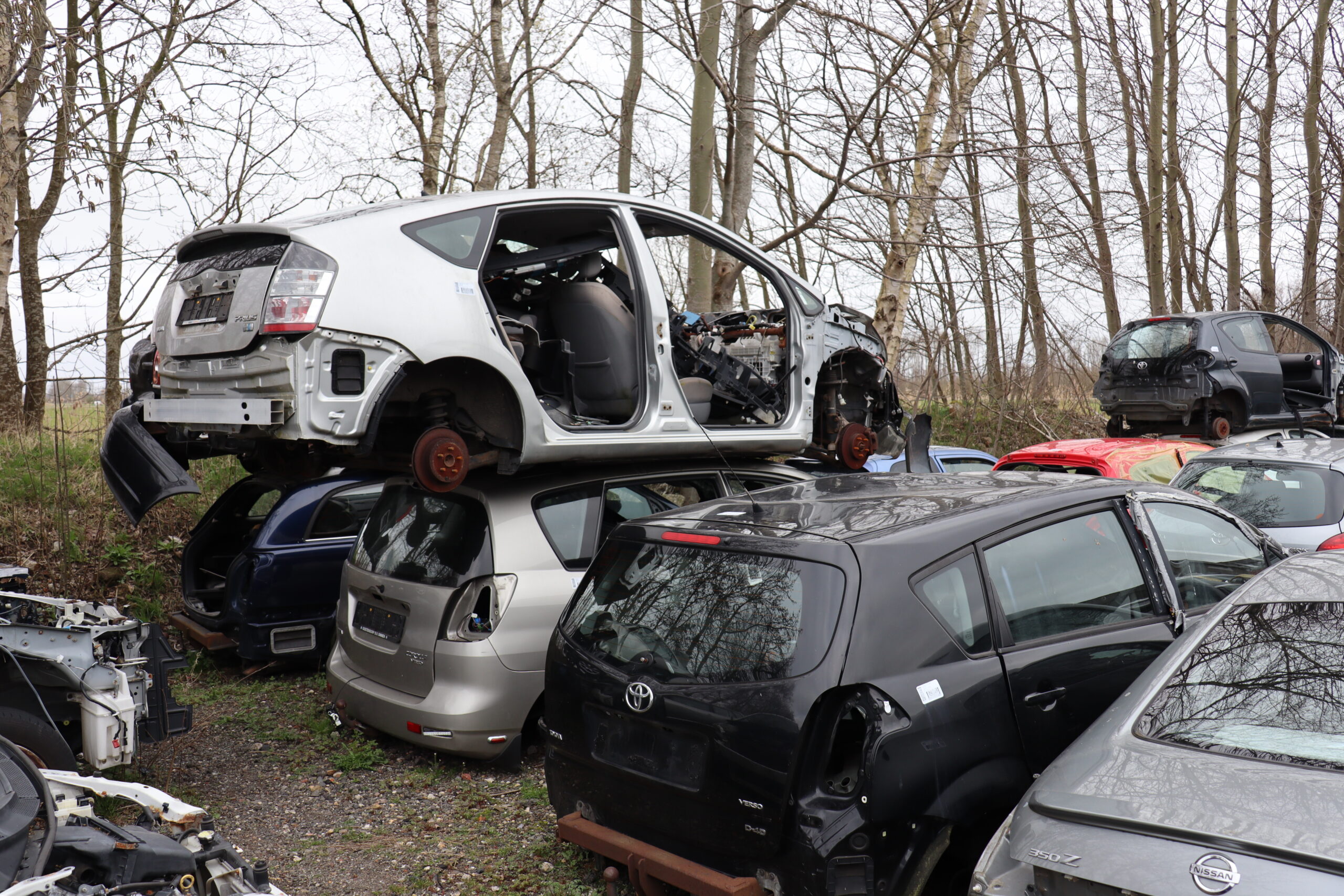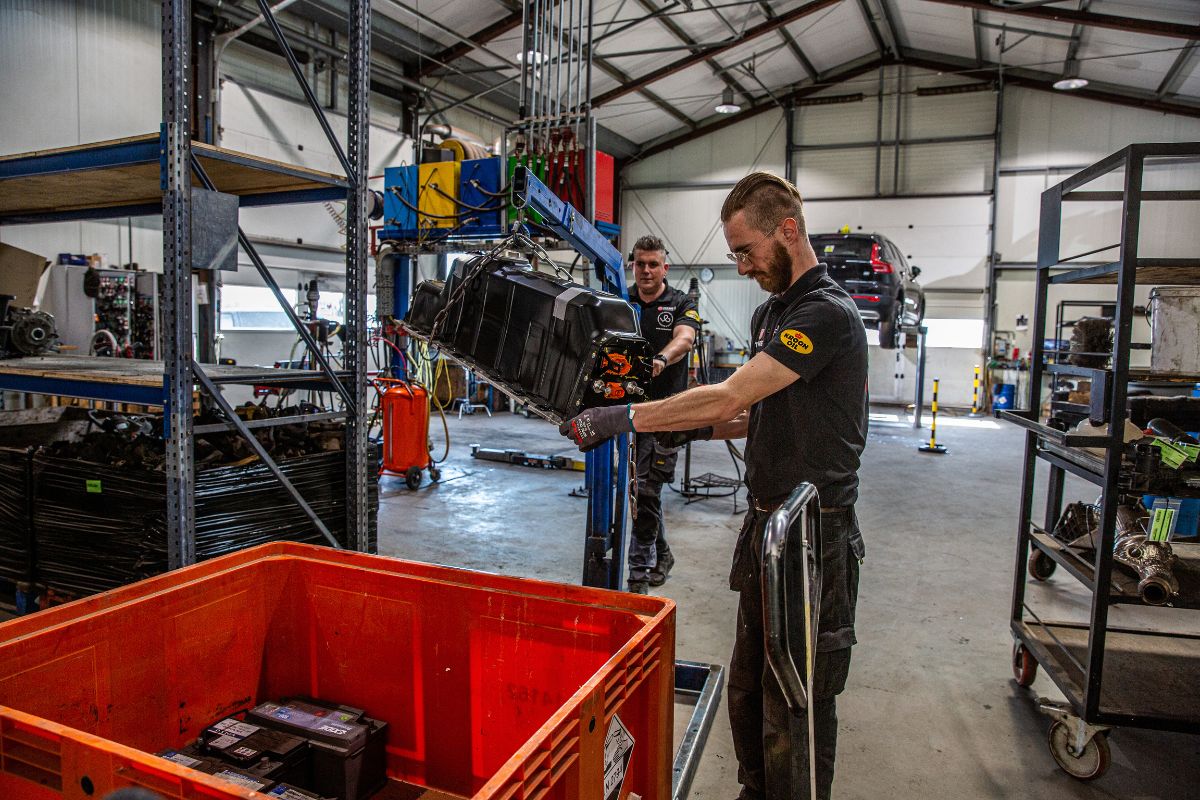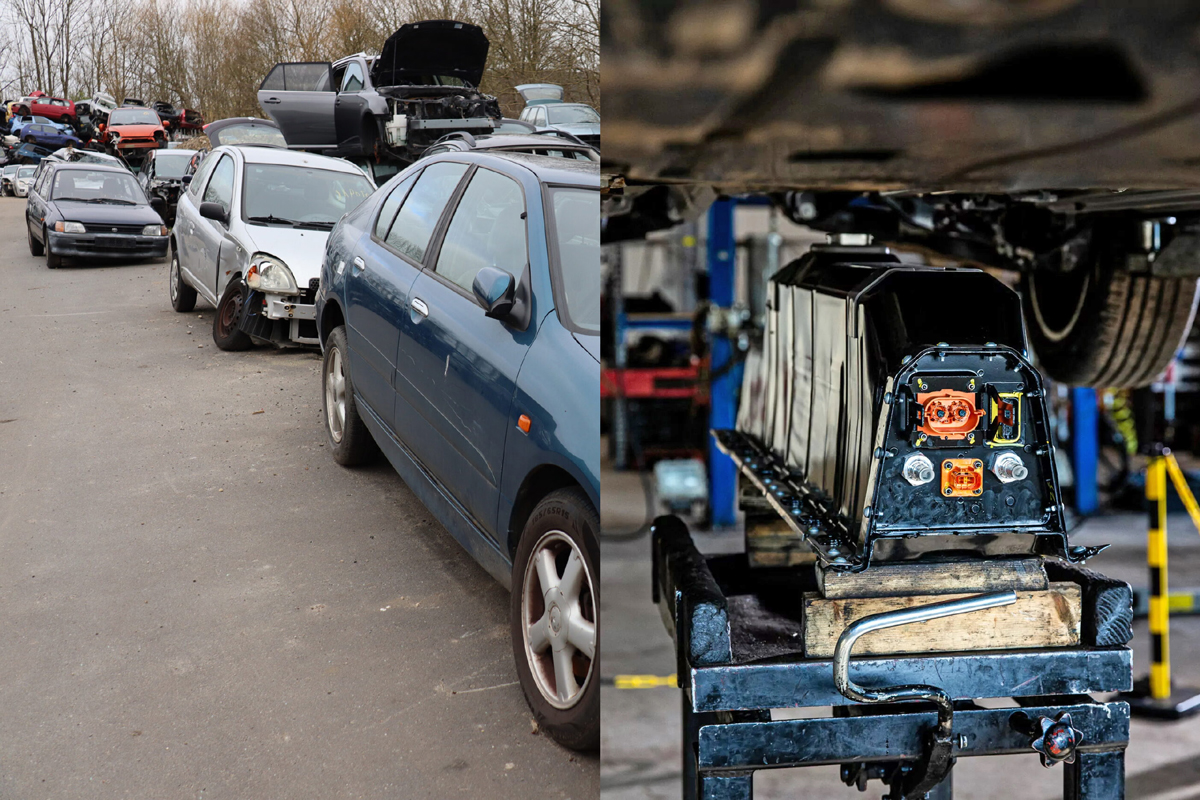China is about to make vast advances in the field of car parts remanufacturing. The recent Rematec Asia trade fair on remanufacturing technology in Guangzhou (china) showed that two parties are stimulating this trend: Chinese insurers and the government.
Time for a hard question: if the garage needs to fix a defect to your car, do you go for a new part or for a used, factory-revised part that has a warranty and is 30 to 40 percent cheaper?
China is taking the lead
The use of high-grade remanufactured parts – also known as ‘reman’ parts – is increasingly receiving attention around the globe. In Asia, and especially China, more and more car owners will make the choice for reman parts in the next few years. Not just because this will cost them less yuan, but also because the government is actively promoting this. “Asia, and especially China, are taking big steps in this area this year. The demand is growing quickly, the government has implemented corresponding legislation and the industrial sector is investing in large reman factories. I believe China is rapidly catching up with Europe in this regard, and will soon take the lead,” says Yorien de Ruijter.
Rematec Asia 2020
De Ruijter has been the Director of Remanufacturing Events at RAI Amsterdam since last May. After successful Rematec trade fairs in 2019 in the RAI and in China, the new director immediately faced a serious challenge: organising the Rematec Asia 2020 trade fair in Guangzhou – during the corona pandemic. Due to corona travel restrictions, the actual numbers of international exhibitors and visitors this year were somewhat lower than those of the event in 2019. This was especially true for large international car brands, though significant local interest partly made up for this. This is hardly surprising, as Guangzhou is the beating heart of the production of China’s car industry.
“China is one of the first countries in the world where insurers want to seriously and structurally integrate high-grade remanufactured parts into their processes”
Chinese insurers are familiarising themselves with the market
In 2019, China produced over 21 million cars. One in four new cars in the world is made in China. In China alone, there are currently 93.2 million cars on the road that have exceeded their warranty: an enormous, rapidly-developing market for replacement parts. The presence of insurance companies among the exhibitors and about 20,000 visitors of Rematec Asia 2020 was quite remarkable. “Chinese insurers were clearly familiarising themselves with the market! Reman products are interesting to them for various reasons. First of all, there is the price benefit of about 30 percent. If an insurer can get garages to apply reman parts, it will save them a tidy amount. These savings can lead to a competitive advantage, especially if they result in lower premiums.”
Government promotes sustainability
The second reason is that China is undergoing serious sustainability developments, which are emphatically promoted by the government. Applying reman parts is an interesting way for insurers to make their activities more sustainable. “China is one of the first countries in the world where insurers want to seriously and structurally integrate high-grade remanufactured parts into their processes. This sets an excellent example for insurers in Europe and America. Of course, the application of high-grade remanufactured parts in China needs to develop further, too. “There are a number of large, certified companies that could develop into reliable partners. In addition, the large brands are active here. Mercedes-Benz, for example, built a large reman factory in China. The other reman companies in China are relatively small and are still in the development phase.” Trust is key if the market for remanufactured products is to develop. “The Chinese association for remanufacturing plays a positive role in this. They think in terms of standards and certification – we often work with them”, says De Ruijter. The association opened various forums for the discussion of quality, schemes and standards, among other things, at Rematec Asia.
Trust and legislation
Chinese governments clearly understand that trust in the quality of high-grade remanufactured parts is crucial to the development of this market. In December, new remanufacturing laws will come into effect, and this was clearly an important topic of discussion at Rematec Asia. “The implementation of these laws is a good example of the decisive approach taken by the government. Things move fast in China: the government wants to develop a sustainable and more circular economy and immediately, within a few months, measures are implemented to support this.”
The effects of that approach are already visible within and outside the Guangzhou region. “In 2008, only a few companies in China were active in remanufacturing. A recent study showed that this relatively new industry is already worth about € 30 billion by now, which is about the same as in Europe. In China, this market is predicted to be worth about € 70 billion by 2030.

Bottleneck: return logistics and import and export
Of course, there are still a few bottlenecks. The return logistics of Chinese garages to the manufacturer or to the reman factories are still in their early stages. The quality standards should first become common practice, and the organisation of the monitoring and inspection processes should be developed further. Moreover, there are still issues when it comes to the import and export of ‘cores’ (the parts to be remanufactured) between China and Europe. “In China, these ‘cores’ are still designated as waste, which means they cannot be exported or imported. Because of this, it seems car parts remanufacturing in China is doomed to remain a local activity for the time being. Reman parts will not become export products quite yet. The new legislation in December may start changing this, however, as it will assign ‘cores’ a new status, offering some prospects for international trade. According to De Ruijter, once Covid-19 has been dealt with and international trade returns to its old levels, this developing market might yet explode. “Reman from China is coming. You can tell by the actions of the large car brands: they are preparing their operations for this rapid development.”
New trade fair concept
On 24 and 25 March 2021, the new Rematec Live & Connected trade fair concept will be hosted. This trade fair concept will have a strong online presence, as well as a focus on connection and sharing knowledge.
What is the difference between ‘Sustainably used’ and reman?
Remanufacturing is a method of reuse based on restoring parts to new condition. Parts are expertly disassembled, industrially cleaned, and reassembled and tested in accordance with the latest specifications. This way, the part will be of equal quality to the original. Because of the extensive checks and tests, you can be sure of a proper product with a warranty and a lower price tag.
Sustainably used refers to original, used parts which are carefully selected by car dismantling companies. This not just sustainable, but also benefits your budget. In order to promote the use of original, used parts, Stiba recently launched the Duurzaam Gebruikt (Sustainably Used) campaign.
Geavanceerde PP-recycling in Ohio
PP wordt ook veel gebruikt als verpakkingsmateriaal. Bijvoorbeeld voor shampooflessen. Slechts drie procent wordt gerecycled, omdat het plastic geuren vasthoudt en na recycling zwart of grijs wordt. Voor auto-onderdelen meestal geen probleem, maar voor een nieuwe fles shampoo wel. Het Amerikaanse PureCycle Technologies weet hier raad mee. In de zomer van 2019 opende het een 300 miljoen dollar kostende state-of-the-art recyclingfabriek. In Ohio wordt op jaarbasis 54 miljoen kilo aan PP verwerkt tot geurloze, heldere plastickorrels. Dankzij purificatie kan het op moleculair niveau bijna alle plastic producten aan, van tapijten tot speelgoed en van verpakkingsmateriaal tot wegwerpluiers. Zelfs dashboards en vloermatten zijn niet veilig.
Naast PLA bestaan er veel meer plastics met een bio-based karakter. Zo is Bio-PBS een polymeer op plantenbasis. PBS is sterk en hitte-resistent en wordt in de auto-industrie gebruikt als vervanger van PP, PET en PE-plastics. Er bestaat echter ook bio-based polypropylene (Bio-PP) en bio-PET. Ook PHA kan worden ingezet voor duurzame applicaties, zoals in de automotive industrie.

In Belgium it is regulated by law that all 126 accredited centers, where discarded cars can be returned, are affiliated with Febelauto
Extra plus
“For two years now, we have worked with ‘plus’ system for accredited centres, with ‘plus’ centres having trained staff and the right equipment and technology to safely remove drive batteries from electric and hybrid cars. These companies receive extra support from Febelauto and are the only companies to benefit from free battery collection. In the years to come, we will continue on raising awareness on safety issues by organising various webinars about safe transport, packaging and dismantling.” The exact dates can be found on the Febelauto website from November onwards. The webinars will be free of charge. “This way, we can continue to get car battery recycling the positive attention it deserves,” Catherine Lenaerts concludes.
Meest gelezen
Kansen na de crisis
“Hoe ik de kansen voor verkoop van hoogwaardig hergebruikte onderdelen in relatie tot de coronacrisis zie? Tijdens de kredietcrisis zagen we dat consumenten langer doorreden met hun auto. Als het ging om onderhoud was er een duidelijke voorkeur voor kostenbesparende alternatieven. Automotive Parts Remanufacturing heeft in die periode een grote vlucht genomen.
Circulaire economie
“Tegenwoordig is het aanbod van her te gebruiken onderdelen van demontagebedrijven en van reman-onderdelen groter, is de markt veel transparanter en heeft het online zoeken en bestellen een vlucht genomen. Daarnaast staan begrippen als duurzaamheid en circulaire economie veel beter op het netvlies bij de consument. Garage- en demontagebedrijven kunnen de te verwachte vraag bij klanten naar aantrekkelijk geprijsde, kwalitatief goede onderdelen op maat invullen.”
Minder afhankelijk van nieuwe onderdelen
De ontwikkeling van het concept heeft duidelijke raakvlakken met de actualiteit van vandaag. Waar de aanvoerlijnen van auto-onderdelen complex zijn en over grote afstanden zijn georganiseerd, brengt de huidige coronacrisis een grote kwetsbaarheid aan het licht. “Het maakt de automotive business minder kwetsbaar, doordat we niet meer compleet afhankelijk zijn van nieuwe onderdelen. De leveringszekerheid is groter, doordat de cyclus dichterbij huis blijft.”
-
Tijdens de productie van dit interview is Niels Klarenbeek gestart als beursdirecteur van Metstrade, ’s werelds grootste vakbeurs voor de internationale pleziervaart. Zijn opvolger komt binnenkort in het artikel ‘De recycling van aandrijfbatterijen uit elektrische auto’s in Azië’ aan het woord.
Wat is uw mening? Doe doe poll en maak kans op een Airpaq.
“Je schroeft eraf wat je nodig hebt, legt het in de winkelwagen en rekent af. Doet het onderdeel het niet dan breng je het terug en zoek je een nieuwe uit.” Bezoekers kunnen gereedschap aan de balie huren. De borg krijgen ze terug wanneer ze de tools weer inleveren. “We maken de drempel zo laag mogelijk om zelf onderdelen van auto’s te halen. In principe kan iedereen hier terecht die een schroevendraaier in zijn hand kan houden.”
Opgeruimde aanblik
De klanten zijn divers. Er komen professionele monteurs, doe-het-zelvers, autoliefhebbers, onder wie opvallend veel vrouwen, die of zelf sleutelen of hun partner ondersteunen. De sfeer op de yard en de opgeruimde aanblik werken uitnodigend, bevestigt een jonge vrouw die met haar vader op pad is. “We willen dat het netjes blijft. Daar stoppen we veel energie in”, zegt Wim van der Ven, die de operationele processen binnen de onderneming managet. De vloeistoffen en batterijen zijn uit de auto’s gehaald en als je iets eraf haalt waar mogelijk nog vloeistof inzit, krijg je lekbak mee om het op te vangen. Dit concept is niet meer te vergelijken met die sloperijen waar wrakken driehoog in een weiland lagen.”
Dankzij het asfalt is het nergens drassig en de verlichting zorgt ervoor dat klanten ook in het donker kunnen sleutelen. Na 90 reviews scoort Venyard 4,8 sterren op Google. “Mensen worden er blij van. Laatst was er een makelaar op zoek naar een stoel voor haar 20 jaar oude Fiesta”, vertelt Van der Ven “Ze had online gezien dat we er een hadden staan in precies dezelfde kleur als de hare. De stoel kostte 25 euro. Ze heeft een garagehouder gecharterd om de stoel er hier uit te halen en er bij haar auto weer in te zetten. Het kostte haar 75 euro en ze was zo blij dat ze het aan iedereen vertelt die het horen wil. Een betere ambassadeur kan je je niet wensen. Zo’n vrouw zag je vroeger nooit op ons terrein. Met Venyard boren we echt een nieuw publiek aan.”
PP wordt ook veel gebruikt als verpakkingsmateriaal. Bijvoorbeeld voor shampooflessen. Slechts drie procent wordt gerecycled, omdat het plastic geuren vasthoudt en na recycling zwart of grijs wordt. Voor auto-onderdelen meestal geen probleem, maar voor een nieuwe fles shampoo wel. Het Amerikaanse PureCycle Technologies weet hier raad mee. In de zomer van 2019 opende het een 300 miljoen dollar kostende state-of-the-art recyclingfabriek. In Ohio wordt op jaarbasis 54 miljoen kilo aan PP verwerkt tot geurloze, heldere plastickorrels. Dankzij purificatie kan het op moleculair niveau bijna alle plastic producten aan, van tapijten tot speelgoed en van verpakkingsmateriaal tot wegwerpluiers. Zelfs dashboards en vloermatten zijn niet veilig.
Poll
Stelling
Wilt u kans maken op een gratis Airpaq-tas, ter waarde van € 195,– en gemaakt van een echte airbag. Vul dan uw e-mailadres in.
